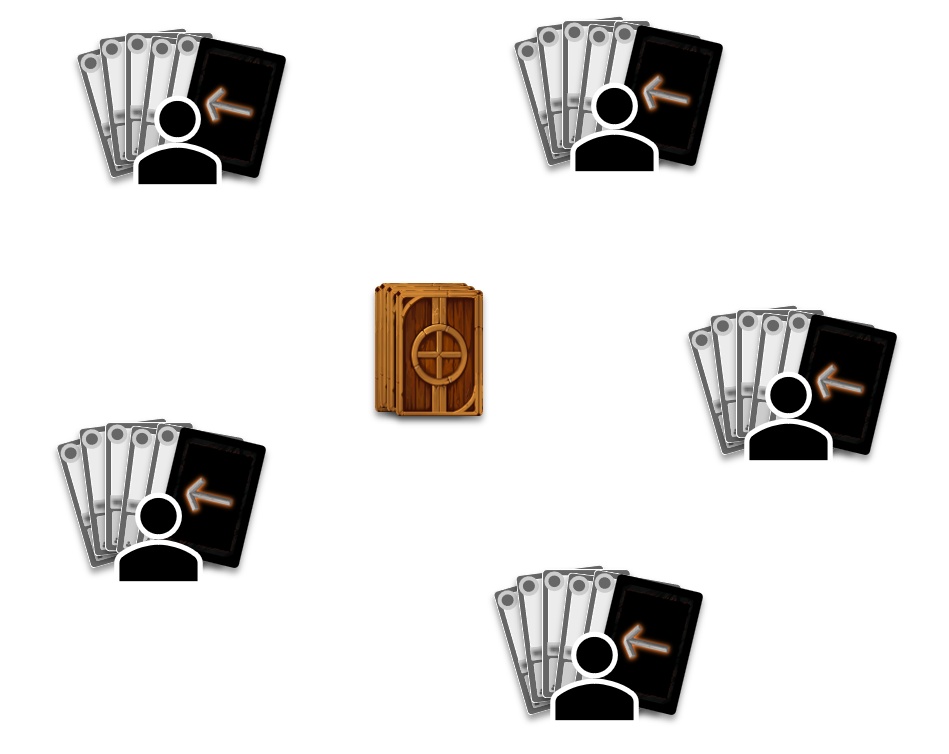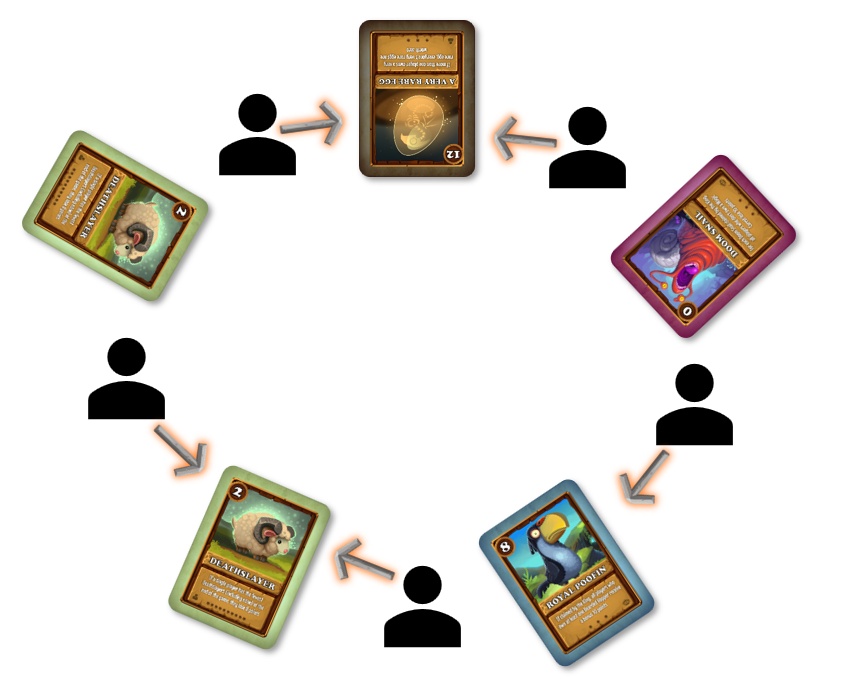


Quabble
Requirements
Description
Quabble is a fast-paced negotiation game of card collection and strategy.
Make promises. Break them. Build trust. Lose it. Form allies. Backstab them.
You may not have any friends left after playing Quabble.
The Story
The battle of Hedonia was short lived (which, as far as battles go, is probably the best one could hope for).
A revolution has replaced the old ruling structure - the ruling clans and their borders are now gone, and the entire land of Hedonia is united under a single King.
However, whilst the old clan chiefs are gone, their clans still remain. Renamed as 'houses' (it sounds more noble), the King grants each house autonomy to manage their surounding shared lands that now belong to the Kingdom.
There is a slight problem though: the shared lands between adjacent houses contain magical creatures and enchanted artefacts – these assets are valuable, but who decides which house gets to keep them?
To prevent further bickering, the King dictates each house must present their collected assets to their neighbouring house. If both houses want it, the asset’s value will be split between them. If only one house wants the asset, the house can claim it as their own. If neither house wants it, the asset will be given to the King.
Let the negotiations begin…
Set up
Give five asset cards to each player and a Claim Indicator card. The remaining cards are placed in the middle - these are the King's "unreleased" assets deck.

Game play
Players are seated in a circle. The rules are very simple:
(1) Everyone offers one of the asset cards from their hand to the player on their left.
(2) Everyone now has a card on their left (the one they offered) and to their right (the card offered to them).
(3) Using the arrow on their Claim Indicator, everyone simultaneously points to the card on their left or right they wish to claim as their own.
- If both players want the card, they share half its value but don't get to use its power
- If one player wants the card, they keep it, getting its full value and power at the end of the game
- If neither player wants the card, it's claimed by the King (i.e., returned to the middle of the table, face up)
For example:

(4) Everyone takes another card from the Unreleased deck
Winning
The game ends once no more cards can be offered. Players add up their points from their shared asset cards, plus the full points from their asset cards they have successfully collected, taking into account these asset's powers.
The challenge is that most asset cards' powers are affected by other asset cards that have been collected by yourself and other players! For example:

This makes a simple game very challenging, as each player has to monitor not just their own cards, but the cards that others may collect too!
You may influence which asset cards other players collect through negotiation, threats, promises and deception!
Components
| Component | Quantity | Photo |
|---|---|---|
| Poker Hook Box (72 cards) | 1 |  |
| Poker Deck | 1 deck of 1 cards |  |
| Poker Deck | 1 deck of 1 cards |  |
| Poker Deck | 1 deck of 60 cards |  |
| Poker Deck | 1 deck of 1 cards |  |
| Poker Deck | 1 deck of 6 cards |  |
| Poker Deck | 1 deck of 1 cards |  |
| Poker Deck | 1 deck of 1 cards |  |
| Poker Deck | 1 deck of 1 cards |  |
Vitals
| Average Rating | 0 reviews |
|---|---|
| Publish Date | August 21, 2024 |
| Edition | First |
| Department | Games |
Why buy this?
- It's an easy to learn party game!
- It's like "Sushi Go on Steroids"
- A great way to lose friends quickly!
Made By Roro
Notes
- This game contains a premium upgrade called UV Coating that makes the printed components more durable.


